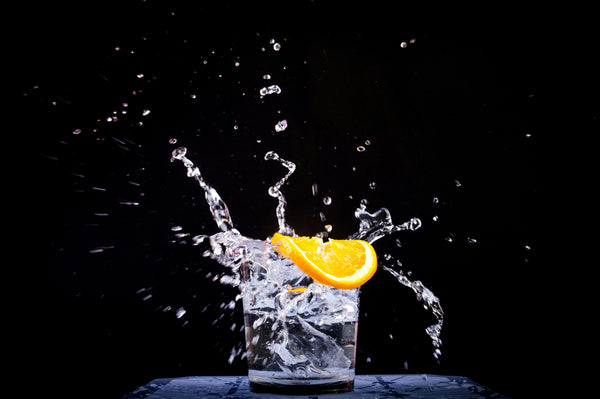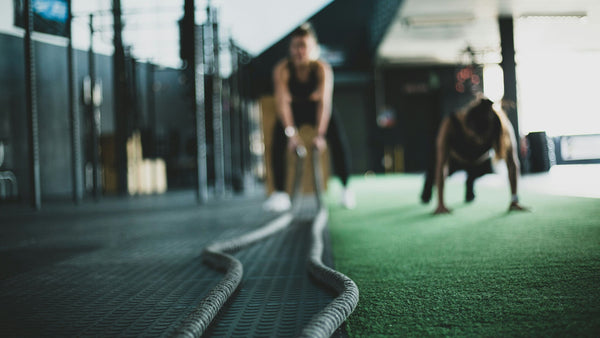Staying hydrated and replenishing electrolytes is critical for maintaining overall health and wellness. However, can you drink too many electrolytes? This is a common question among many individuals who are attempting to optimize their hydration levels. Let's explore the potential risks and consequences of consuming too many electrolytes, as well as provide guidance on how to strike the perfect balance for optimal hydration.
What are Electrolytes?
Electrolytes are essential minerals that conduct electricity when dissolved in water. They are essential for various bodily functions, including nerve and muscle function, fluid balance, and pH balance. In our bodies, the most common electrolytes are sodium, potassium, calcium, magnesium, chloride, and phosphate. These minerals are responsible for maintaining proper hydration levels, transmitting electrical signals throughout the body, and regulating changes in acidity and alkalinity. Electrolyte imbalances can result in symptoms such as muscle cramps, weakness, confusion, and irregular heartbeat. It is important to consume a balanced diet and stay hydrated to ensure adequate levels of electrolytes in the body.
Common Electrolyte Ingredients in Sports Drinks

When it comes to replenishing electrolytes lost during physical activity, sports drinks or drink mixes are often the go-to solution. These beverages contain a variety of electrolyte ingredients essential for maintaining adequate hydration levels and supporting bodily functions. Let's take a closer look at some of the most common electrolytes found in sports drinks:
Magnesium
Magnesium is critically involved in muscle function, energy production, and electrolyte balance. During intense exercise, magnesium levels can decrease, leading to muscle cramps and fatigue. Including magnesium in sports drinks helps replenish this essential mineral, supporting optimal performance and recovery. Natural food sources of magnesium include leafy green vegetables, nuts, seeds, and whole grains.
Sodium
Sodium is perhaps the most well-known electrolyte and plays a pivol role in maintaining fluid balance, nerve function, and muscle contraction. When you sweat, you lose sodium, which can lead to dehydration and decreased performance. Sports drinks containing sodium help replace what is lost through sweat, aiding in hydration and preventing cramping. Sodium is naturally found in many foods, including table salt, processed meats, canned soups, and pickled foods.
Potassium
Potassium is another key electrolyte involved in muscle and nerve function, as well as fluid balance. Like sodium, potassium levels can decrease with sweating, particularly during prolonged exercise. Sports drinks containing potassium help replenish this electrolyte, supporting proper muscle function and preventing fatigue. Potassium-rich foods include bananas, potatoes, sweet potatoes, avocados, spinach, and citrus fruits.
Calcium
While calcium is known for its significance to bone health; it also plays an important role in muscle contraction, nerve transmission, and blood clotting. While calcium loss through sweat is minimal compared to other electrolytes, it is still important to maintain adequate levels during exercise. Including calcium in sports drinks helps support overall electrolyte balance and muscle function. Natural sources of calcium include dairy products like milk, yogurt, and cheese, as well as leafy greens, fortified plant-based milks, and tofu.
Chloride
Chloride is often overlooked but is critical for maintaining proper hydration and electrolyte balance. It works alongside sodium and potassium to help regulate fluid levels in the body and is lost through sweat during physical activity. In electrolyte supplements, you may find chloride in its combined form with sodium, as sodium chloride. Chloride is commonly found in foods like table salt (sodium chloride), seaweed, tomatoes, and celery.
Phosphate
Phosphate is involved in energy production through the synthesis of ATP, the primary energy currency of cells. While not as prominent in sports drinks as other electrolytes, phosphate can still play a role in supporting endurance and performance during prolonged exercise. Natural sources of phosphate include protein-rich foods such as meat, fish, poultry, dairy products, nuts, and seeds.
Can You Drink Too Many Electrolytes?
In short, yes, you can drink too many electrolytes. While electrolytes are essential for optimal body function, overconsumption can lead to an imbalance in the body's electrolyte levels. This can result in symptoms such as nausea, dizziness, muscle cramps, and in severe cases, even heart palpitations. It is important to consume electrolyte-rich drink mixes or beverages such as sports drinks or coconut water in moderation, especially during intense physical activity or in hot weather when electrolyte loss is higher. Consulting with a healthcare provider or nutritionist can help determine the appropriate amount of electrolytes needed for individual needs.
When Should You Supplement with Electrolytes?

Knowing when to supplement with electrolytes can be crucial for maintaining hydration and performance during physical activity. Electrolyte supplementation is particularly important in the following situations:
-
Intense Exercise: During prolonged or intense exercise sessions, especially in hot and humid conditions, electrolytes are lost through sweat at a higher rate. Supplementing with electrolytes helps replenish those lost minerals and maintain proper hydration levels to prevent dehydration and maintain performance.
-
Extended Duration: Activities lasting longer than one hour can lead to significant electrolyte depletion. In such cases, consuming sports drinks or electrolyte-enhanced beverages can help sustain electrolyte balance and support endurance.
-
Heavy Sweating: Individuals who sweat heavily, whether due to environmental conditions, high-intensity workouts, or certain medical conditions, may benefit from electrolyte supplementation to replace the minerals lost through sweat and prevent electrolyte imbalances.
-
Recovery: Electrolyte supplementation can also aid in post-exercise recovery by replenishing depleted minerals and facilitating muscle recovery and hydration restoration.
-
Illness or Dehydration: In cases of illness accompanied by vomiting, diarrhea, or fever, electrolyte levels can become imbalanced due to fluid loss. Replenishing electrolytes through oral rehydration solutions or electrolyte-enhanced beverages can help restore hydration and electrolyte balance.
It's essential to listen to your body and recognize signs of dehydration or electrolyte imbalance, such as muscle cramps, fatigue, dizziness, or nausea. In such instances, supplementing with electrolytes can be beneficial in maintaining performance and overall well-being. However, it's also important not to overconsume electrolytes, as excessive intake can lead to adverse effects. Consulting with your healthcare provider or sports nutritionist can provide guidance on electrolyte supplementation based on individual needs and circumstances.
Signs of Electrolyte Imbalance
Detecting signs of electrolyte imbalance is crucial for maintaining health and performance. Common indicators include:
-
Muscle Cramps: Electrolyte deficiencies, particularly potassium, magnesium, and sodium, can cause muscle cramps during exercise or rest.
-
Fatigue and Weakness: Reduced electrolyte levels may lead to fatigue and muscle weakness due to impaired muscle function and energy production.
-
Irregular Heartbeat: Imbalances in potassium, calcium, and magnesium can disrupt the heart's electrical signals, causing palpitations or arrhythmias.
-
Nausea and Vomiting: Electrolyte disturbances, often due to dehydration, can result in nausea, vomiting, and gastrointestinal discomfort.
-
Headaches and Dizziness: Low electrolyte levels, particularly sodium, can lead to headaches, dizziness, and lightheadedness.
-
Excessive Thirst or Urination: Increased thirst or urination can indicate electrolyte imbalances, especially in cases of dehydration or kidney issues.
Recognizing these signs and addressing electrolyte imbalances promptly through proper hydration and supplementation when necessary can help maintain overall health and performance.
Other Ways to Stay Hydrated and Maintain Electrolyte Balance
In addition to electrolyte supplements, several strategies can promote hydrated and maintain electrolyte balance:
-
Drink Plenty of Water: Water is the most fundamental way to stay hydrated. Drink water consistently throughout the day, especially during and after physical activity.
-
Eat Electrolyte-Rich Foods: Incorporate foods naturally high in electrolytes into your diet, such as fruits (e.g., bananas, oranges), vegetables (e.g., spinach, potatoes), nuts, seeds, and dairy products.
-
Consume Balanced Meals: Eating balanced meals that include a variety of nutrients can help support electrolyte balance. Include sources of carbohydrates, proteins, fats, vitamins, and minerals in your diet.
-
Use Sports Drinks Wisely: While sports drinks can be beneficial during intense or prolonged exercise, they should not replace water as your primary hydration source. Reserve them for situations where electrolyte replenishment is necessary.
-
Monitor Sweat Loss: Be aware of how much you sweat during exercise and in hot environments. If you sweat heavily, consider increasing your electrolyte intake through food or beverages.
-
Stay Mindful of Alcohol and Caffeine: Alcohol and caffeine can have diuretic effects, increasing urine output and potentially leading to dehydration. Moderation is key when consuming these beverages.
-
Listen to Your Body: Pay attention to thirst cues and other signs of dehydration or electrolyte imbalance, such as dry mouth, dark urine, fatigue, and muscle cramps. Respond promptly by hydrating and replenishing electrolytes as needed.
By adopting these practices, you can support hydration and electrolyte balance effectively, promoting overall health and well-being. Adjust your hydration strategy based on individual needs, activity level, and environmental conditions for optimal performance and comfort.
Bottom Line
While electrolytes are important for hydration and muscle function, it is possible to consume too many. Excessive intake can lead to an imbalance in the body's electrolyte levels, causing symptoms such as nausea, vomiting, and muscle cramps. It is important to consume electrolytes in moderation and be mindful of the overall balance of electrolytes in your diet. Consulting with a healthcare professional or nutritionist can provide proper guidance on the appropriate amount of electrolytes for your individual needs. Remember to stay hydrated and follow a balanced diet to support overall health and well-being.